 Reconciliation
Reconciliation
Reconciliation encompasses truth-telling, sharing of historical narratives, or dialogue to transform relations among groups affected by conflict and rebuild trust between the state and citizens so that former enemies can envision and realize a shared future. USIP supports research to evaluate and better understand the practices of reconciliation used around the world and their impact.
Featured Publications
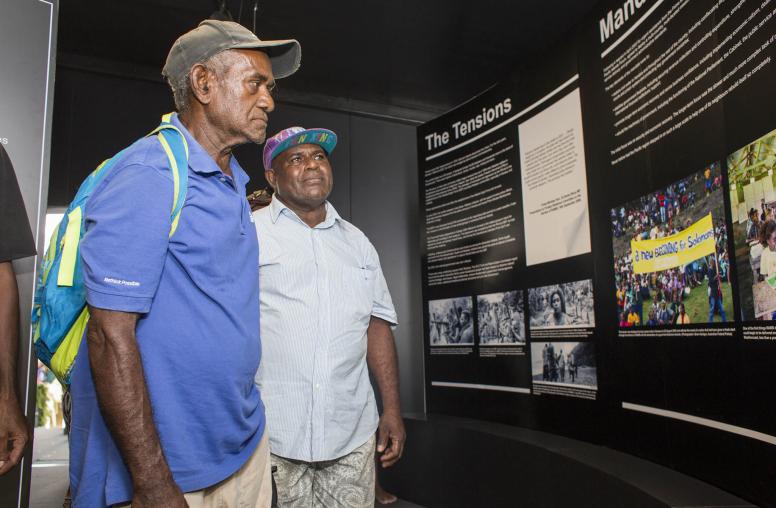
It’s Not Too Late for Solomon Islands’ Truth and Reconciliation Commission
Established in 2008, the Solomon Islands Truth and Reconciliation Commission (TRC) was tasked with investigating the country’s civil conflict that killed 200 people and displaced more than 20,000 others between 1998 and 2003. The commission was the first of its kind in the Pacific Islands region, and its proponents hoped it could heal people’s lasting trauma by addressing human rights violations, promoting national unity and fostering reconciliation.
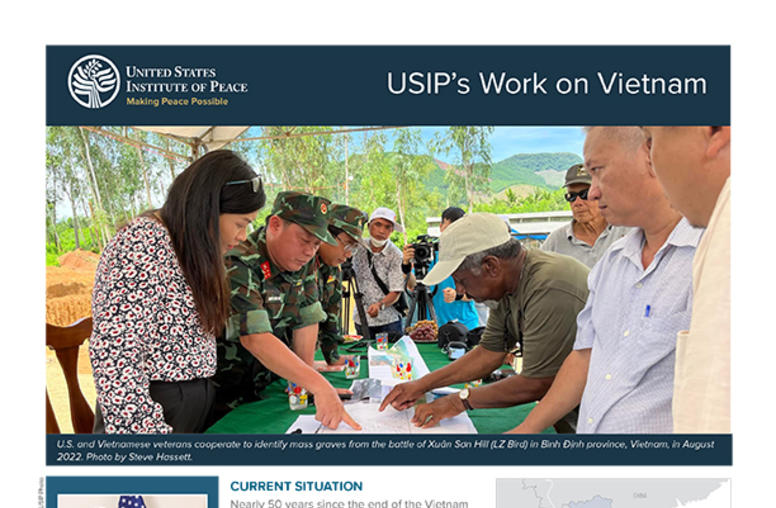
The Current Situation in Vietnam
Nearly 50 years since the end of the Vietnam War, and more than a quarter-century since the normalization of U.S.-Vietnam relations, Vietnam is emerging as a rising power at the heart of the Indo-Pacific region and an increasingly important U.S. partner. Once one of the world’s poorest and most isolated countries, Vietnam is now a middle-income country with a dynamic, young population and a promising future.
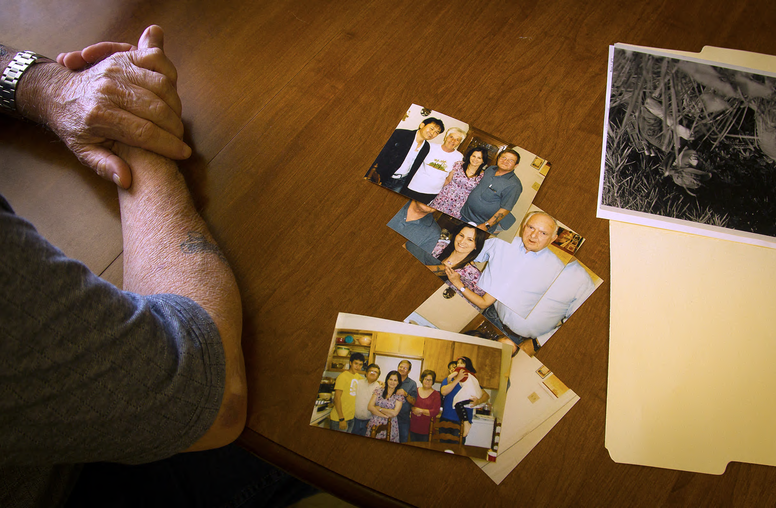
Transforming the Legacy of Children Born of War in Vietnam
During and after the Vietnam War, up to 500,000 “children of war” were born to foreign soldiers and local women in Vietnam. Amerasians — children of war fathered by U.S. soldiers — and adoptees raised abroad are now reclaiming their narratives and healing journeys.
Current Projects
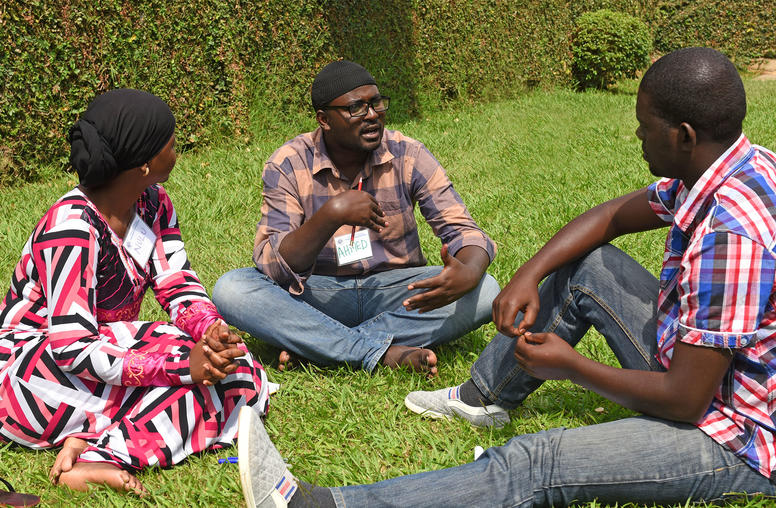
People-to-People Reconciliation Model
The People-to-People Reconciliation Model is a tool that models the potential for success of people-to-people reconciliation interventions using game theory. The model focuses on interventions that attempt to influence small collections of individuals — with the expectation that changes among such small groups can spread through populations and create widespread change.
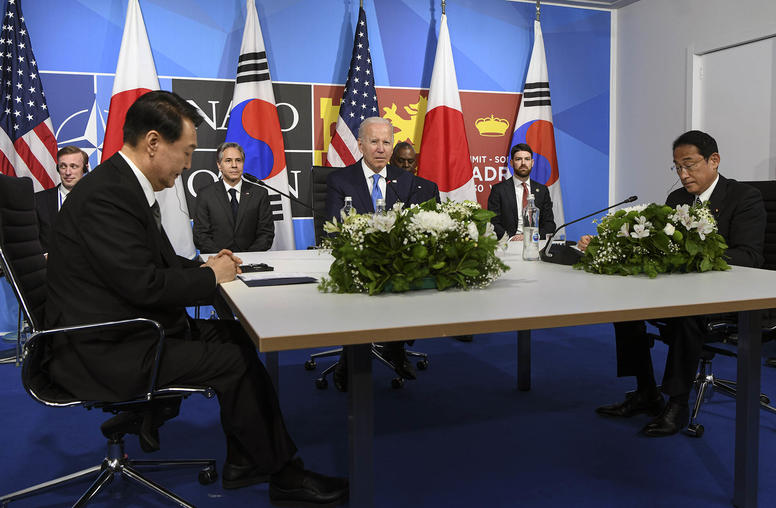
Resolving Tensions Between South Korea and Japan: An Essay Series
South Korea and Japan normalized relations in 1965, but unresolved historical disputes continue to undermine genuine bilateral reconciliation and optimal diplomatic, security and economic cooperation. Past efforts, both between the two countries and trilaterally with the United States, to help improve relations have generally emphasized a “future-oriented” approach that focused on common security and economic interests.
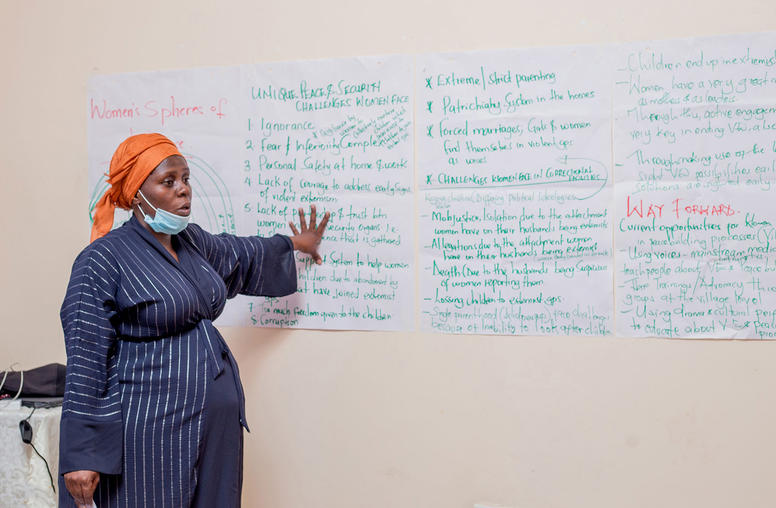
The USIP Learning Agenda
In support of the Evidence Act and as part of the U.S. national security architecture, USIP is carrying out its own learning agenda. Peacebuilding has long been viewed as too messy and complex for evidence-based approaches — but USIP’s mix of research and practice belies that assumption.